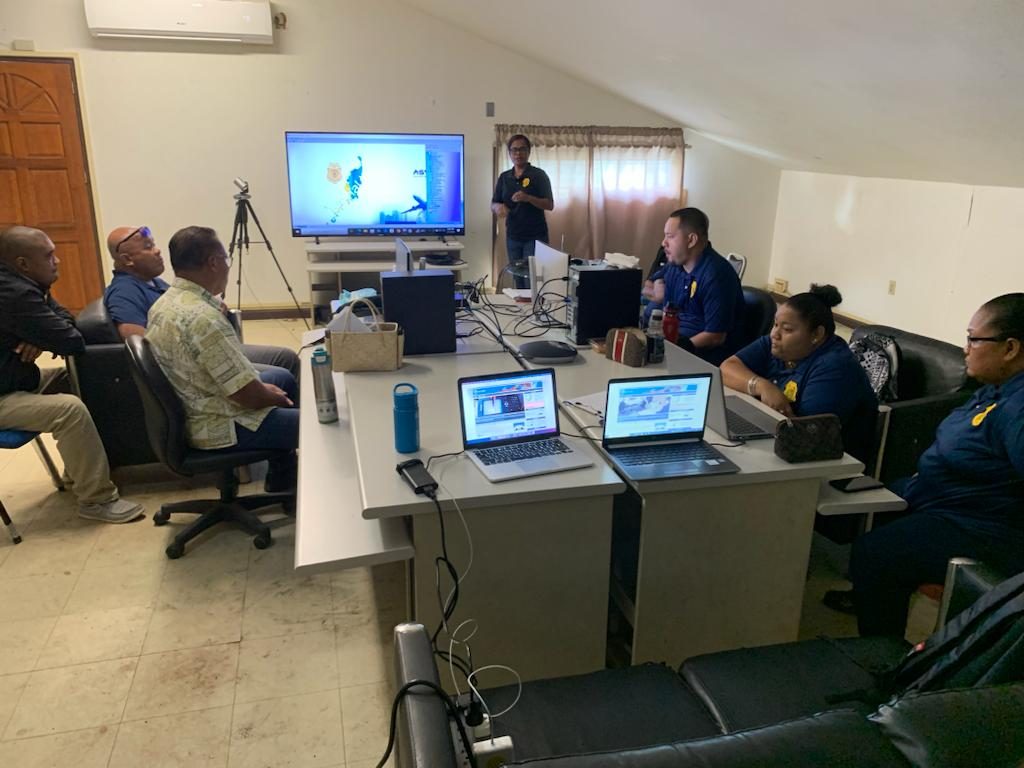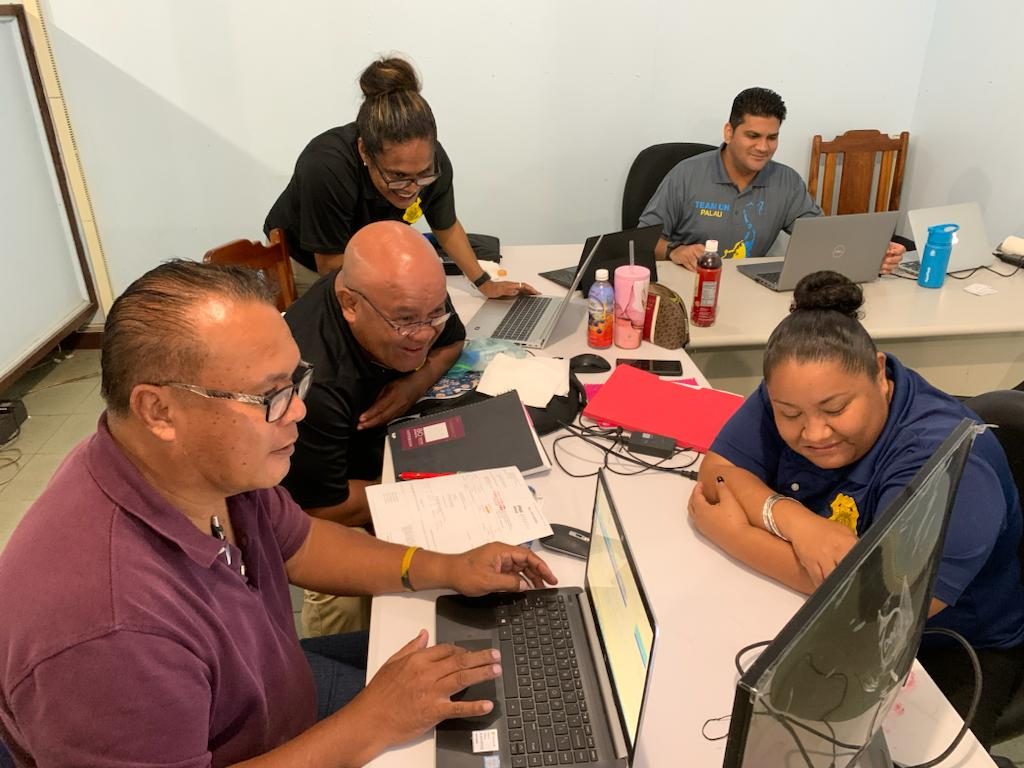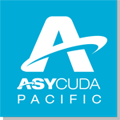The Republic of Palau is committed to reforming its customs and trade procedures through the ASYCUDA automated system.
To ensure a successful and sustainable shift to the advanced ASYCUDAWorld system, a well-informed and trained workforce remains essential.
In light of this belief, Customs officials of the Republic of Palau, were provided extensive training to become acquainted with the ASYCUDAWorld system ahead of the country’s customs operation being brought fully digital.
The ASYCUDAWorld digital platform offers electronic services and user-friendly interfaces for remote communication between customs and the trading community, enabling easier submission of customs declarations and the faster processing of electronic customs documents.
The training was funded by the European Union and implemented by United Nations Conference on Trade and Development (UNCTAD) Improving Pacific Islands Customs and Trade (IMPACT) Project. It equipped customs officials, traders, importers/exporters, agents, and carriers with necessary skills required to navigate and utilise the system effectively.

The Director for the Republic of Palau Bureau of Customs and Border Protection, Mr. John Tarkong Jr. said, “At this stage, we have successfully completed the third round of trainings for Customs officers, with two earlier sessions aimed at our officers, traders, importers/exporters, agents, and carriers. The feedback from the participants has been overwhelmingly positive. It was noticeable that after the first two sessions, our officers were well acquainted with the system and the new processes. This is a testament to the effectiveness of the training approach and the dedication of the ASYCUDA National Project team members to adapt to the new system.”
The implementation of digitally automated and streamlined, ASYCUDAWorld system, will improve revenue and data collection for the Republic of Palau’s Bureau of Customs and Border Protection.

Mr. Tarkong Jr. added, “There will be an increase toward the effective collection of customs revenues and data. Additionally, reduced processing times and increased government revenues are also projected from this customs automation, modernization and reform project. With almost half of the customs administrations around the world now relying on a common automated platform to support their respective customs clearance operations, it is important to realize the important impact and benefits this will have on Palau and why Palau embarked on this project.”
The country is looking forward to a more transparent trade environment facilitated under the foresight of the customs team.
Ms. Ashley Adelbai, who has worked as a Customs Officer II at the Republic of Palau Customs for a decade, said the training was enlightening to her and looked forward to the implementation of the efficient system soon.
“It was enlightening to see how technology can replace traditional customs operations and provide a lot of benefits. There will be a significant reduction in paperwork, which will not only save our time but also reduce the chance of manual errors. Additionally, the ability to view and manage documents in one centralized place will make my daily tasks easier to manage.”
Continued Capacity Building on ASYCUDAWorld:
Private stakeholder entities, such as importers and agents, are scheduled to receive similar training in December 2023. This will provide them with comprehensive knowledge on customs declaration processes to enable faster clearing times, and overall smoother transactions with the system.
Beneficial Functions and features of ASYCUDAWorld:
The ASYCUDAWorld system is expected to increase efficiency and shorten time for clearance thanks to functionalities and features in Palau such as:
• Electronic remote lodgement of declarations
• Linked declaration and manifest
• Linked declaration and payment
• Customized management reports to meet Palau and regional formats.
Additionally, the technological transformation will promote sustainable development by reducing paper work and contributing to a healthier island nation, Pacific and the world.
UNCTAD backed trade technological interventions in trade sector supports in reduction of trade related costs, increases transparency and revenue at customs for countries. This in return helps achieve Sustainable Development Goals (SDGs) in particular SDG 9 and 17.


